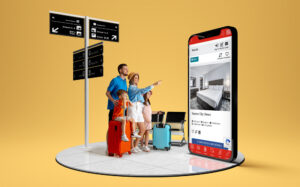Small hotel booking software should pack a big punch. By that, we mean a software solution that has key features to make your hotel’s guest booking experience memorable in all the right ways. With the right features, smaller properties can drive more direct bookings, reduce reliance on OTAs, and build relationships with guests that last.
Below, find out the essential features any booking platform for small hotels should offer.
What software do hotels use for reservations?
Hotel reservation software that provides a streamlined booking experience for guests and frustration-free management for hotels of all sizes is the optimal booking solution. Fuel’s innovative online hotel booking software is that affordable solution, designed to drive more direct bookings thanks to a slew of key features.
If you’re on the fence about switching reservation software for your hotel or looking to move away from manual property management entirely, we recommend ensuring that your next booking engine for small hotels includes the following features:
1. Intuitive, easy-to-use interface
Making a hotel reservation is a large financial decision for many. So why give guests a chance to second guess their decision with booking software that makes it too difficult to make a reservation? Reservation software that takes too many clicks, asks for too much information, or even opens in a new tab is likely driving customers away.
The booking process, and the software itself, should be incredibly easy to use from the moment a guest picks their stay dates to the time they select ‘Book’. We recommend taking a look at your booking software and ensuring guests have access to the following:
- Intuitive sorting and filtering
- Large, clear imagery that highlights each room individually
- Value-add options like add-ons and stay extensions
- Saving capabilities so guests can login to modify and alter bookings
- Multiple ways to view rates including by room, length of stay, and daily
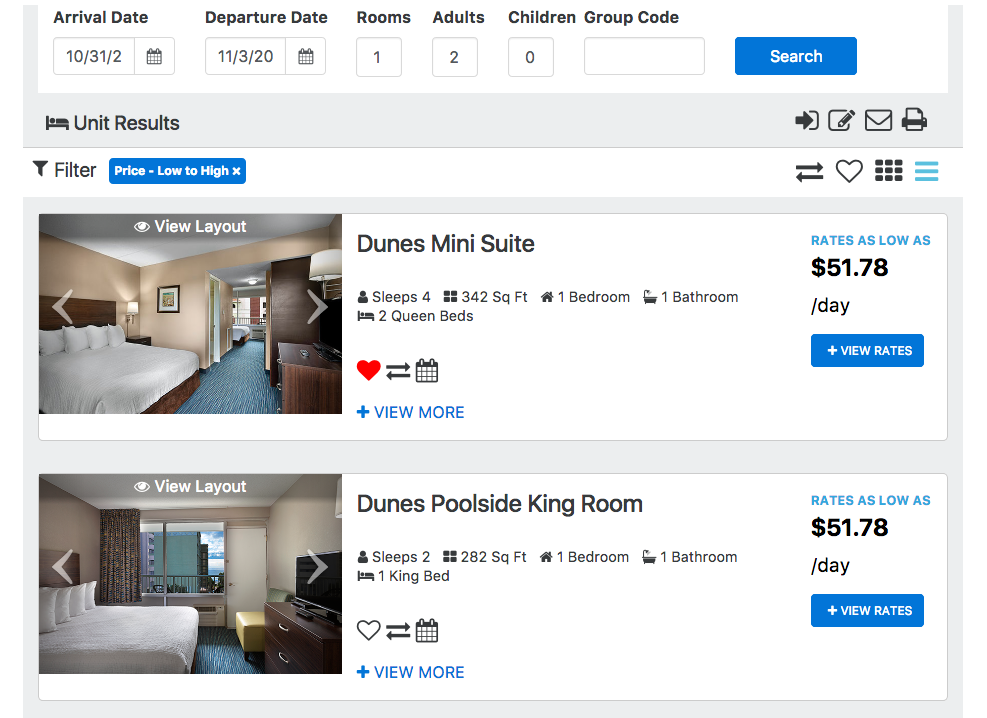
2. Built mobile first
It’s no surprise that with the advancement of mobile technology that more and more people are using their mobile devices to make more online searches. In fact, since 2016, most searches on Google in the United States are from mobile devices. The COVID-19 pandemic pushed that number to nearly ⅔ of all Google searches in the United States.
So what does that mean for hoteliers?
It means more people are likely starting their travel research via mobile device, which means more mobile visitors to your website and booking engine. That’s why it’s increasingly important that small hotels, and any size hotels, implement a hotel booking platform that is fully compatible with mobile users.
If guests find it difficult to select their stay dates, pick a room, or even add their payment information from a mobile device, it’s likely that they will find an alternative to book like an OTA, which has mastered the mobile booking game.
You should look at your booking engine from the guest’s perspective to find opportunities for improvement and identify points of friction that could cause frustration. If most of your website traffic is coming from mobile, review your booking engine from a mobile perspective.
In fact, when you incorporate Fuel’s hotel mobile app solution, guests will be able to book directly on your own branded mobile application. In addition to easier bookings via a mobile application, you can also take advantage of our hotel keyless entry system.
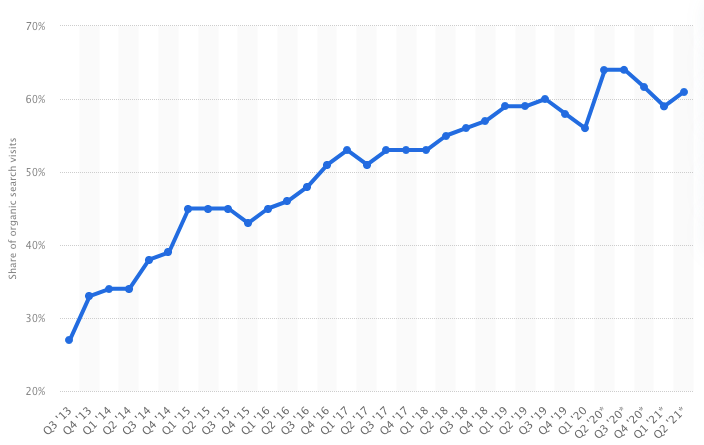
3. Seamless integration with your website
A booking engine that is mobile-friendly is only the first step in optimizing your small hotel booking software needs. A hotel should also build trust and credibility with people looking to travel. That foundation should extend to the booking engine you choose to use.
When a guest is ready to book at your hotel, sending them to a different website with a URL and a design that doesn’t match your own website is, well, head-scratching. To build trust with your guests, the entire booking process should look and feel like your website from start to end.
Keep credibility high and guest concerns away when you use booking software that integrates seamlessly into your hotel’s aesthetic and stays on your URL. Plus, establishing that foundation not only leads to direct bookings now but can lead to repeat bookings in the future. Integrating a seamless booking engine experience with your website will provide a unique feature for small hotels to stand out from the rest.
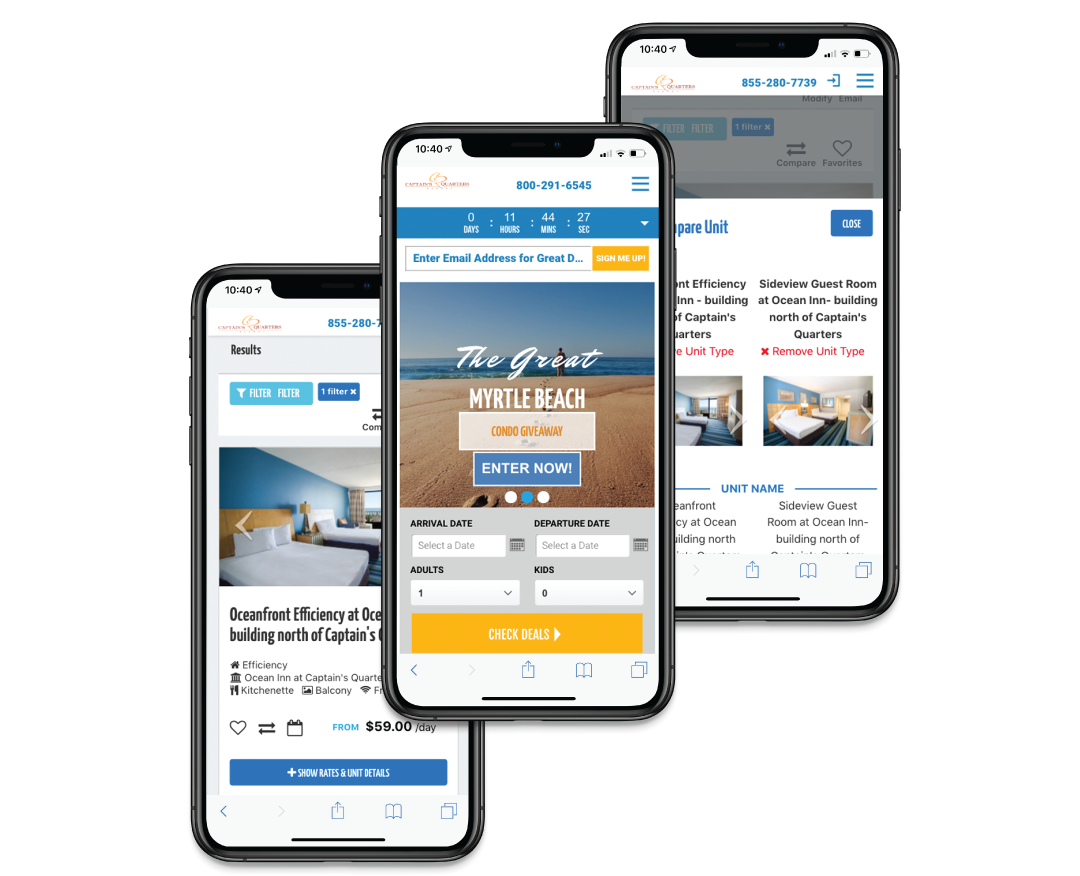
4. Psychological marketing tactics
We mentioned earlier how OTAs have mastered how to push mobile bookings. Well, they’ve also mastered the marketing psychology game. It’s not uncommon for OTAs to use urgency and FOMO tactics throughout the hotel planning process to push people to book on their websites.
But with the right small hotel booking software, small hotels should and can incorporate similar tactics into their direct booking process.
For instance, with the Fuel Booking Engine, hotels can signal to guests just how popular their room types are by highlighting the number of people that have booked or viewed a particular room type, pushing guests to book their preferred room before it’s too late. This can be a boon for hotels with limited room inventory.
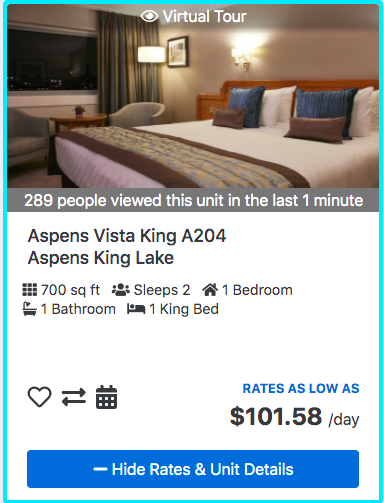
If you’re a smaller, boutique-sized property looking for a mobile-friendly and user-friendly booking engine that can be customized to look and feel just like your hotel’s website, the Fuel Booking Engine is your industry-leading solution.
Request a free demo today!




